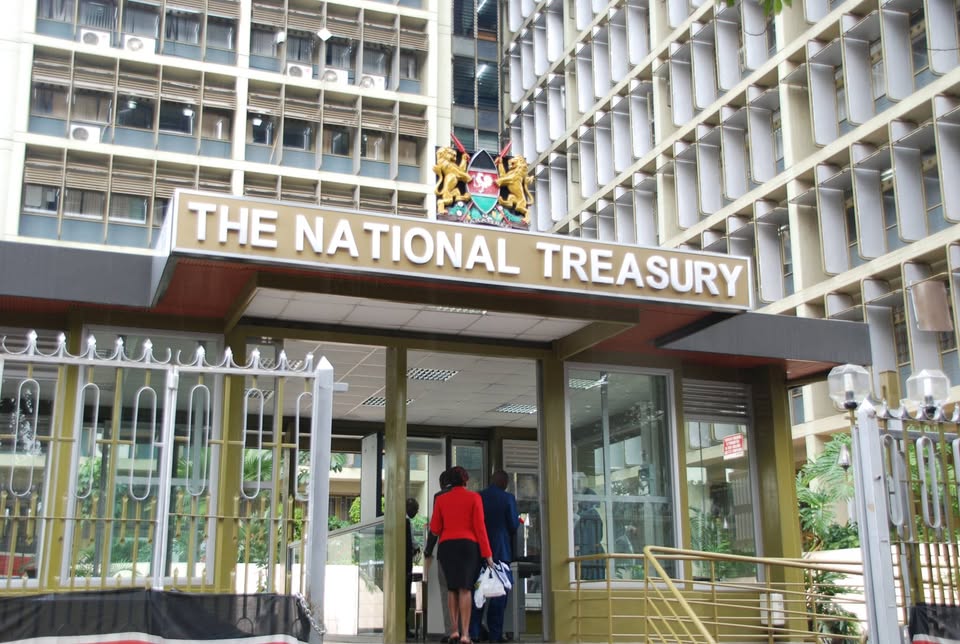
Hello and welcome to the Money News Roundup Newsletter, where we cover how the National Treasury made a Ksh13B profit from investing Kenyans' unclaimed assets. We also cover why foreign investors are dumping the NSE despite a 46% market rally.
The National Treasury has earned Ksh13.1 billion over the past five years from investing unclaimed financial assets in government securities.
As reported by Business Daily, the Unclaimed Financial Assets Authority (UFAA) - which is under the National Treasury- used Ksh22.3 billion of idle funds collected from dormant bank accounts, unpaid dividends, insurance payouts, and unused mobile money wallets such as M-Pesa in Treasury bonds and bills between 2019 and 2024.
This investment yielded a 58.7% return. However, most of the earnings - Ksh9.6 billion remain unused due to the absence of a clear policy on how such income should be applied, despite the government’s ongoing cash crunch.
The law requires UFAA to invest half the unclaimed cash in Treasury bonds, 45 percent in Treasury bills, and retain five percent as cash.
Meanwhile, UFAA used Ksh3.4 billion from the returns to run its operations, with its annual operational reliance on investment income more than doubling since 2019.
Despite unclaimed assets surpassing Ksh75 billion, less than 10 percent have been reunited with rightful owners, partly due to a lack of awareness and deceased individuals leaving no wills. Billions remain frozen in shares, bank vaults, and mobile wallets, including Ksh3.2 billion tied to dormant M-Pesa accounts.
Foreign investor participation at the Nairobi Securities Exchange (NSE) has fallen to a more than 10-year low as global investors chase stronger returns in developed markets like the US and UK.
CMA data shows foreign activity dropped to 28% in September, down from 59.5% in April, despite the NSE gaining 46.6% since January.
Offshore investors have largely been net sellers this year, recording Ksh7.2 billion in net sales by September.
As detailed in the Business Daily, booming tech-driven rallies in Western markets and reduced risk appetite for emerging economies have made Kenya less attractive. The NSE is recovering from currency depreciation, policy concerns, and capital flight, but stable inflation and lower government yields are drawing more local investors.
Co-operative Bank of Kenya has launched “Kamilisha,” a new digital overdraft facility that allows customers to overdraw their accounts by up to Ksh100,000 to complete essential transactions such as rent, bills, stock purchases, or send money.
The product directly competes with Equity’s Boostika and Safaricom’s Fuliza.
As reported in the Business Daily, Kamilisha charges a 2% access fee, 20% excise duty on the fee, a 0.2% daily maintenance charge, and a small insurance fee. A Ksh1,000 overdraft repaid in 30 days would cost about Ksh84.34.
Repayments are automatically deducted from future deposits, with limits determined by account activity and credit score. The launch expands Co-op Bank’s digital credit offerings as demand for short-term mobile borrowing continues to grow in Kenya.
The latest Hass Property Index shows rising preference among Kenyans for detached houses, especially in upscale suburbs like Runda, Karen, and Muthaiga, and fast-growing satellite towns such as Athi River, Ruiru, and Kiserian.
Prices in these areas recorded strong annual growth, driven by local demand, signaling a growing preference for privacy among buyers.
As reported by Kenyans.co.ke, semi-detached houses also saw modest gains over the year.
Apartments, despite high construction activity, experienced the weakest demand overall, with growth uneven across locations. Lang’ata posted the highest quarterly rise, while Upper Hill and Westlands recorded declines. The report notes that the strong demand that began in late 2023 is now cooling in most areas, with buyers increasingly shifting to more affordable properties.
Education CS Julius Ogamba has warned that parents will bear the full cost of repairing and replacing school property destroyed during student strikes.
Speaking at Litein Boys’ High School in Kericho County, where a strike caused damage estimated at Ksh99 million, he said the government has no funds to cover the destruction caused by students.
As reported by the Eastleigh Voice, parents at the school were initially billed Ksh49,000 each, but the High Court has directed them to pay an interim Ksh25,000 as their petition continues. Ogamba urged schools to improve security and discourage drug abuse, while calling on students to maintain discipline and use dialogue instead of unrest.
As reported by Citizen Digital, Meta has partnered with Safaricom to land its second submarine cable in Kenya, boosting the country’s international internet capacity.
Through its subsidiary Edge Network Services Limited, Meta selected Safaricom as the landing partner for a high-speed cable linking Kenya and Oman. Safaricom CEO Peter Ndegwa said the deal supports the firm’s transition into a full tech company under its Vision 2030 strategy and will help meet rising demand for fast, low-latency connectivity.
Fully funded by Edge, the system will enhance digital innovation and economic growth, with licensed operators in both countries managing local infrastructure and territorial cable segments.
Join 1.5M Kenyans using Money254 to find better loans, savings accounts, and money tips today.

Money 254 is a new platform focused on helping you make more out of the money you have. We've created a simple, fast and secure way to find and compare financial products that best match your needs. All of the information shown is from products available at established financial institutions that our team of experts has tirelessly collected.

